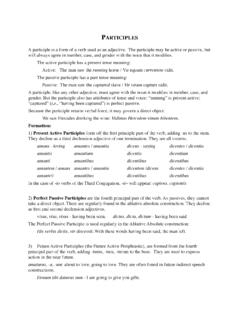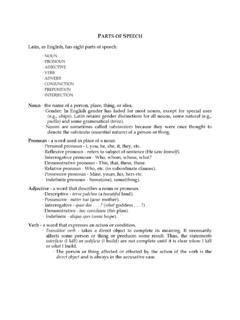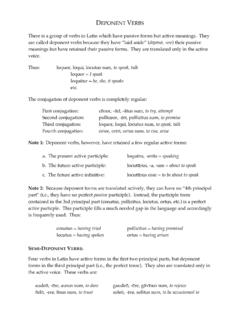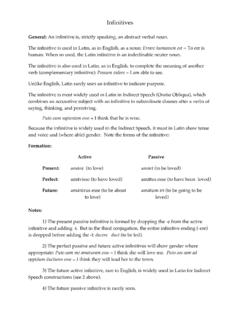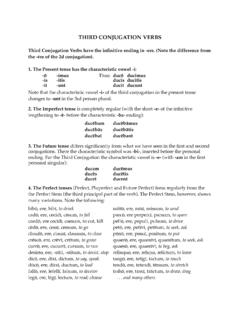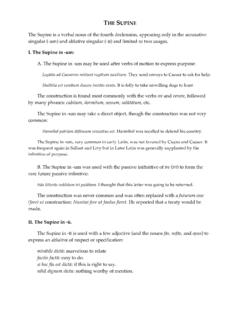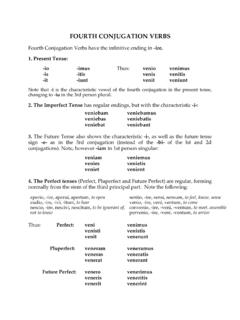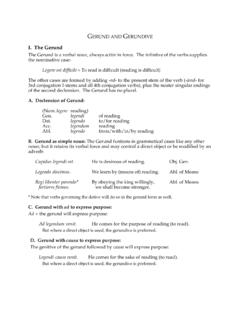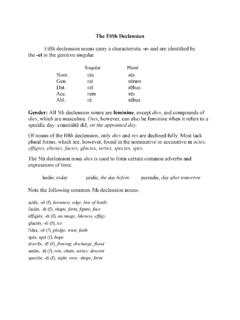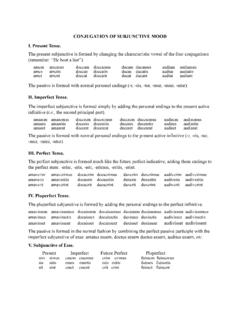Transcription of ABLATIVE ABSOLUTE
1 ABLATIVE ABSOLUTE One of the most common uses of present and perfect participles in latin is a construction called the ABLATIVE ABSOLUTE . The ablatives of a participle and a noun (or pronoun) are used to form a substitute for a subordinate clause defining the circumstances or situation in which the action of the main verb occurs. The ablatives are only loosely connected grammatically to the remainder of the sentence, hence its name ABSOLUTE (absol tus = free or unconnected). An ABLATIVE ABSOLUTE with a perfect passive participle is widely used in classical latin to express the cause or time of an action: H s verb s dict s, Caesar disc dit.
2 With these word having been said, Caesar departs. Accept s litter s, Caesar disc dit. With the letter having been received, Caesar departs. Le ne v s , f minae discess runt. With the lion having been seen, the women departed. Equally common is an ABLATIVE ABSOLUTE with a present active participle: Le ne adveniente, f mina disc ssit. With the lion approaching, the woman left. On occasion, another noun may take the place of the participle in the ABLATIVE ABSOLUTE construction:Caesare duce vinc mus. With Caesar as leader, we shall conquer.
3 Note: The noun (or pronoun) expressed in the ABLATIVE ABSOLUTE is never the subject of the sentence. If we wish to say When she was departing, the woman saw the lion, we cannot use the ABLATIVE ABSOLUTE , because the subject of each clause ( she and woman ) is the same. Instead, a simple participle is used: F mina disc d ns le nem v dit. Because the participle in an ABLATIVE ABSOLUTE retains its verbal force, it may govern its own direct object: Duce milit s vocante, hostes f g runt. With the general calling his soldiers, the enemy fled.
4
